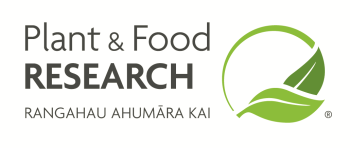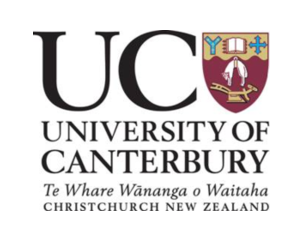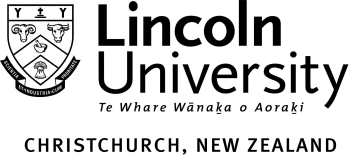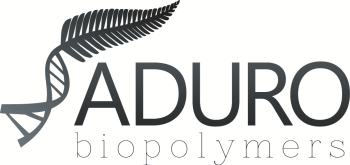2013 Awards Finalists
The KiwiNet Awards celebrate heroes in research commercialisation — those individuals and organisations whose best practice approach is changing the innovation landscape in New Zealand. We congratulate the 2013 finalists!
Commercialisation Collaboration Award
This award recognises the outstanding new collaborations formed between multiple research organisations working together to build national scale around a technology platform or address a business need.
 Callaghan Innovation
Callaghan Innovation
Ovine Automation Consortium
 Aldera Health
Aldera Health
A collaboration to develop an animal and plant corridor in New Zealand
 Plant & Food Research
Plant & Food Research
Land Use Change & Intensification
Callaghan Innovation: Ovine Automation Consortium.

Callaghan Innovation: Ovine Automation Consortium.
The Ovine Automation Consortium, known as OAL, embodies research partners and industry in a unique collaboration. At its inception the open forum discussion, with members of 9 different meat companies, 2 research partners, 2 research organisation advisors with support from MIRINZ Inc, jointly owned by the MIA and Beef + Lamb, all contributing to a common goal, was a new approach for an industry that had recently begun to see the value of research collaboration. The research partners are Callaghan Innovation and Milmeq Limited with input from both AgResearch and the University of Auckland. Its success is testament to excellent leadership with focus, vision and the ability to keep a very diverse group on track.

Aldera Health: A collaboration to develop an animal and plant corridor in New Zealand.
Aldera is building scientific capability in NZ through international partnerships and facilitating collaboration across NZ’s research community.
Aldera’s vision is to create a national platform for capitalising on the collective expertise of NZ’s public research organisations and international recognition to develop new solutions that will address New Zealand’s and some of the world’s most prominent animal and plant diseases.
Creating an Animal and Plant R&D Corridor positions New Zealand to be truly competitive on the world stage as an innovative solutions provider for animal and plant health.
Plant and Food Research: Land Use Change & Intensification.
The Land Use Change & Intensification programme involves scientists from both Plant & Food Research and AgResearch. The aim of the programme is to ensure that the productive capacity of New Zealand’s agricultural land is sustained or enhanced in the face of land use change, intensification of land use and climate change while maintaining soil and groundwater quality. The programme has developed a range of computer-based soil, crop, nutrient and irrigation management tools, including simulation models and on-farm calculators and improved soil and crop management practices, enabling farmers to improve the economic performance of intensively managed land and reduce the environmental impacts.

Researcher Entrepreneur Award
This award recognises an entrepreneurial researcher who has made outstanding contributions to business innovation or has created innovative businesses in New Zealand through technology licencing, start-up creation or by providing expertise to support business innovation.
 Professors John Boys and Grant Covic
Professors John Boys and Grant Covic
Electrical and Computer Engineering Department, Auckland University, nominated by UniServices
 Dr John Abrahamson
Dr John Abrahamson
ArcActive: nominated by Research & Innovation, University of Canterbury
 Professors William Denny and William Wilson
Professors William Denny and William Wilson
Co-Directors of Auckland Cancer Society Research Centre (ACSRC) — Auckland University, nominated by UniServices

Professors John Boys and Grant Covic: Electrical and Computer Engineering Department, Auckland University, nominated by UniServices.
This team has been undertaking commercialisation for over 25 years and they have a passion for seeing their work used in the real world. It is a passion they instill in all of their students. As a result of their work the Power Electronics Lab in Auckland is regarded as one of the leading centres of its kind in the world.
John and Grant are the inventors on more than 60 US, European, and Japanese Patents in several Patent families. These patents have been licensed to 6 companies in a variety of different fields, including materials handling, electric vehicles, lighting and security. Their technology has had global impact.
The pinnacle of John and Grant’s work came in 2010 when based on work that John and Grant did in the lab in response to the global car industry, UniServices formed Halo Induction Power Technologies together with the global engineering firm, Ove Arup and the TransTasman Commercialisation Fund. John and Grant under contract with the company continued to develop the technology and as a result in October 2011 Qualcomm purchased the assets of Halo for an undisclosed but multimillion $ deal.

Dr John Abrahamson, ArcActive: nominated by Research & Innovation, University of Canterbury
Formerly an Associate Professor in the Chemical and Process Engineering department at Canterbury University, John was the first person to find and characterise Carbon Nano Tubes ("CNTs") in the 1970's. Since this initial finding John has continued to contribute visionary insights regarding both natural phenomena and industrial processes.
In 2007, John met Stuart McKenzie (ArcActive's CEO) and ArcActive was founded on the basis the technology that John invented, now known and patented as AACarbon. John is now Chief Technology officer at ArcActive, in his capacity as CTO he continues to push the limits of his technology into new applications to reach a vast range of markets. ArcActive is currently commercialising the technology for use in electrodes for ‘Stop/Start’ batteries in modern cars.
Professors William Denny and William Wilson, Co-Directors of Auckland Cancer Society Research Centre (ACSRC) — Auckland University, nominated by UniServices.
Prof. William Denny and Prof. William Wilson have been involved in contract research and commercialisation for over 30 and 20 years respectively, including leadership of the Auckland Cancer Society Research Centre (ACSRC).
Commercialisation started with one partnership and throughout the years they have been instrumental in forging long-time and valuable commercial partnerships. Prof. Denny has been an inventor on 27 patent families and Prof. Wilson on 14 patent families within the Auckland UniServices database.
The partnership between Profs. Denny and Wilson is demonstrated in their pioneering work in the hypoxia field, which resulted in Proacta Therapeutics being funded. The ACSRC has spun out 3 companies (Proacta Therapeutics, Pathway Therapeutics and Ruga) that have successfully raised international seed and venture capital investment. The leadership quality of the nominees flows through to ACSRC ethos, motivation and success.

Research & Business Partnership Award
This award recognises the deeply embedded working relationship between a research organisation and business that delivers significant commercial value for New Zealand.
 Callaghan Innovation
Callaghan Innovation
Advanced Sonar Technology
 AUT
AUT
Growing The Surf Clam Industry
 Lincoln University
Lincoln University
New Zealand Seed Alliance

Callaghan Innovation — Advanced Sonar Technology: Partnering with Industry for Export Impact.
The Advanced Sonar Technologies team (which includes Eugene Stytsenko, David Greager, Neil Scott and Marco Meijer) at Callaghan Innovation is a multi-disciplinary team which was set up to develop long-range sonar technologies during a research engagement with ENL (Electronic Navigation Limited).
The team has been collaborating with ENL for well over 10 years leading to commercial success for ENL’s WASSP sonar product which is now exported to 39 countries.
In 2010 ENL entered into a five year co-funding agreement with Callaghan Innovation to work together on the development of the next generation of sonar technologies.
The agreement— which involves in-kind and direct co-funding from both parties — will deliver a new generation of products incorporating innovations in the area of hardware design, transducers and signal processing techniques developed by both ENL and Callaghan Innovation teams.

Auckland University of Technology — Growing the New Zealand surf clam industry with the Cloudy Bay Group.
Since 2011, the Cloudy Bay Group and AUT (through Assoc. Prof Lindsey White) have developed a strong collaborative relationship to deliver significant growth for the Group, as well as New Zealand’s seafood industry and fisheries sector.
AUT has built and continues to build expertise and is gaining a national reputation in aquaculture and fisheries research, innovation and development. The output also includes skilled students, who have gained practical experience, and collaboration between different faculties at AUT. Cloudy Bay group benefits by having access to experts to develop new products and processes to allow it to grow its business and compete successfully in international markets.
A mature NZ surf clam industry has been estimated at NZ$300-400 million in export earnings. This collaboration’s strategy seeks to contribute to this projected growth, as well as New Zealand aquaculture industry’s growth plan which aims to increase seafood export to $1b per annum by 2025, through market-led product innovation and exports.

Lincoln University — The New Zealand Seed Industry Alliance.
The partnership between the majority of New Zealand’s leading seed technology researchers and seed companies has played a major role in New Zealand achieving its predominant position within the seed industry globally.
In 2012, at the instigation of industry, this long-standing relationship was formalised through the establishment of The New Zealand Seed Industry Alliance, the aim being to further consolidate the relationship, to intensify the industry-led research it pursues and to ensure continued end-user value through timely and high quality knowledge transfer and product commercialisation.
The Alliance is the seed research community’s and the seed companies’ joint response to the significant challenges faced by the seed growing industry. Its formation has further strengthened the communication lines between researchers and seed companies to ensure market needs are fully understood and reinforced the implementation pathways for delivering timely and effective technology transfer and commercialisation of new discoveries.
Commercial Deal Award
The commercial deal award celebrates excellence in research commercialisation delivering outstanding innovation performance and the potential for generating significant economic impact for New Zealand.
 Otago Innovation
Otago Innovation
TOXINZ Success
 Grasslanz Technology
Grasslanz Technology
Delivering innovative plant technologies
 WaikatoLink
WaikatoLink
Bioplastic made from bloodmeal

Otago Innovation — TOXINZ Success.
Developed over the past 50 years, the National Poisons Centre’s database, TOXINZ, has been widely used by New Zealand clinicians. Now it is gaining the respect of the international medical profession as well. The TOXINZ database, developed at the University of Otago, today contains more than 190,000 documents with comprehensive and up-to-date information on poisonous chemicals, pharmaceuticals, plants and animals.
It is fully referenced, providing treatment pathways, brand names and combination products, removing the need for clinicians to identify individual ingredients and chemicals. It is also easily navigated and contains images to help with the identification of hazardous plants and animals. TOXINZ’s content is maintained 24 hours a day, seven days a week by poisons information staff, with updates made in real time as new information becomes available.
TOXINZ is a world-class, gold standard database with commercial potential. Benefit to New Zealand and worldwide has been demonstrated through subscriptions to TOXINZ currently being sold to Poison Centres, Hospitals, state governments and Health boards. Otago Innovation has leveraged this niche specialised information and to create significant international returns.

Grasslanz Technology Limited — Delivering innovative plant technologies.
Grasslanz has been a success story through the delivery of technologies and products, from the public research organisation science system, to end users both in New Zealand and offshore. Grasslanz Technology Limited was established as a subsidiary of AgResearch in 2003.
Grasslanz invests in the development of proprietary plant technologies primarily delivered through seed and our end users are farmers. It establishes alliances with seed companies to commercialise its products. Grasslanz works with an international network of investors and research organisations to develop innovative new products. Grasslanz success is underpinned by:
- employing a successful commercialisation model based around partnerships and licensing.
- commercialisation of a large number of new forage technologies creating wealth for NZ farmers.
- its core strength of pasture cultivars and endophyte, and successful development of a broader product port-folio with international reach.

WaikatoLink — Bioplastic made from bloodmeal.
In 2007 Dr Johan Verbeek from University of Waikato’s material science research laboratory discovered a method of making biodegradable plastics from bloodmeal. In 2008 Novatein Limited was formed and venture capital firm Endeavour Capital invested alongside WaikatoLink to create commercial opportunities for the technology. From 2007-2012 over 23 researchers at the University of Waikato completed materials science research on Novatein to identify ways in which the material could be manipulated to achieve certain properties and characteristics.
Late 2012 WaikatoLink and Wallace Corporation reached agreement on investment into a new entity to build and expand on the work of Novatein, with the objective of creating a much larger company focused on commercialising polymers and materials from prime industry co-products. The new company, called Aduro Biopolymers, spurred co-development and partnership discussions with two NZ companies and Scion for the development of Novatein products for the NZ and export markets, and the development of new products from other feedstock sources.

